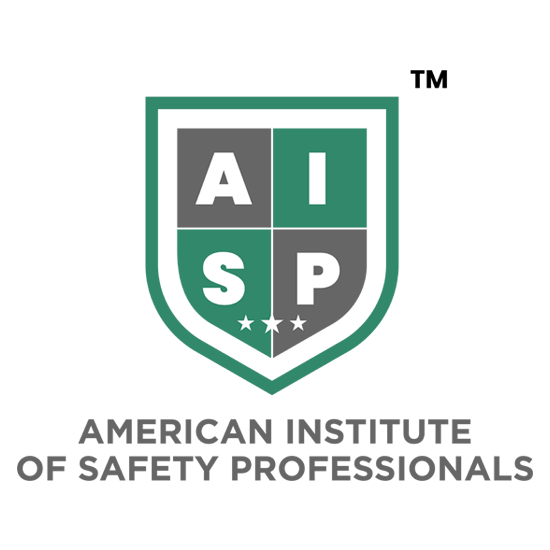265 Hackensack St
Wood Ridge, New Jersey 07075 USA
SAFETY IS NOT A CHOICE, IT'S A RESPONSIBILITY WE OWE TO OURSELVES AND THOSE AROUND US
Safety Accountability Programs
- January 01, 2026 - December 31, 2026
- Flexible Timings
- Open Enrollments
- Online Zoom Sessions or LMS
- +1 689 286 3561
- info@amiosp.com
Course Overview
Learning Outcomes
- Understand the principles and importance of safety accountability in achieving effective workplace safety performance.
- Define roles, responsibilities, and accountability levels for employees, supervisors, and management within safety programs.
- Develop and implement structured safety accountability systems aligned with organizational goals and regulatory requirements.
- Apply performance measurement tools, leading and lagging indicators, and safety metrics to evaluate accountability effectiveness.
- Integrate safety accountability into daily operations, supervision practices, and decision-making processes.
- Encourage proactive reporting of hazards, near misses, and unsafe behaviors without fear of retaliation.
- Conduct safety observations, audits, and performance reviews to reinforce accountability and continuous improvement.
- Apply fair and consistent corrective actions and recognition programs to strengthen positive safety behaviors.
- Communicate accountability expectations clearly across all organizational levels to support a strong safety culture.
- Demonstrate leadership commitment and ethical responsibility in sustaining effective safety accountability programs.
Mode of Delivery
Course Content
- Introduction to Safety Accountability: Concepts, Importance, and Benefits
- Roles and Responsibilities of Management, Supervisors, and Employees
- Developing Clear Safety Expectations and Performance Standards
- Leading and Lagging Safety Performance Indicators
- Behavior-Based Safety and Accountability Systems
- Incident Reporting, Investigation, and Corrective Action Ownership
- Integrating Safety Accountability into Policies, Procedures, and Work Practices
- Communication, Coaching, and Feedback for Safety Improvement
- Designing and Implementing Safety Accountability Frameworks
- Linking Safety Performance to Appraisals and Recognition Programs
- Case Studies on Accountability Failures and Best Practices
- Sustaining Accountability through Audits and Management Reviews
Entry Requirements
Program Duration
Examination
Additional Information
Why Choose American Institute of Safety Professionals's Qualifications
Excellence in Training Solutions
- Understanding safety recognition and reward systems
- Basic design components of effective incentive programs
- Employee involvement and communication
- Action and assessment of safety programs
- Perfect for managers and supervisors, safety professionals, and anyone in charge of occupational safety.
Professional Recognition
Dedicated Support & Response
At American Institute of Safety Professionals Qualifications, we assign a dedicated, knowledgeable account supports manager to each client, ensuring personalized and expert service. Our commitment to responsiveness is highlighted by our policy of replying to queries within 24 hours, exemplifying our dedication to customer care.
Career Opportunities
This training program is intended to provide entry-level general industry workers information about their rights, employer responsibilities, and how to file a complaint as well as how to identify, abate, avoid and prevent job related hazards on a job site. The training covers a variety of general industry safety and health hazards which a worker may encounter at a work site. Training should emphasize hazard identification, avoidance, control and prevention, not OSHA standards.
| From | To | Status | Type |
|---|---|---|---|
| 2025-01-05 | 2025-01-06 | completed | E Learning Online Session |
| 2025-02-05 | 2025-02-06 | completed | E Learning Online Session |
| 2025-03-05 | 2025-03-06 | completed | E Learning Online Session |
| 2025-04-05 | 2025-04-06 | completed | E Learning Online Session |
| 2025-05-05 | 2025-05-06 | completed | E Learning Online Session |
| 2025-06-05 | 2025-06-06 | completed | E Learning Online Session |
| 2025-07-05 | 2025-07-06 | completed | E Learning Online Session |
| 2025-08-05 | 2025-08-06 | completed | E Learning Online Session |
| 2025-09-05 | 2025-09-06 | upcoming | E Learning Online Session |
| 2025-10-05 | 2025-10-06 | upcoming | E Learning Online Session |
| 2025-11-05 | 2025-11-06 | upcoming | E Learning Online Session |
| 2025-12-05 | 2025-12-06 | upcoming | E Learning Online Session |
- 265 Hackensack St Wood Ridge, New Jersey 07075 USA
- +1 689 286 3561
- info@amiosp.com
Trainings
AISP Registered Safety Officer (RSO)
The AISP Registered Safety Officer (RSO) course provides essential training in workplace safety, hazard identification, and regulatory compliance. It equips safety officers with the skills to enforce safety protocols, manage risks, and ensure a safe working environment while meeting industry safety standards.
Inquire NowElectrical Safety for Managers
The Electrical Safety for Managers course provides essential training on overseeing electrical safety programs, risk management, and OSHA compliance. It equips managers with the knowledge to implement safety policies, identify electrical hazards, and ensure that workplace electrical practices meet safety standards.
Inquire NowConstruction Safety Management
The Construction Safety Management course offers comprehensive training in managing safety on construction sites. It covers hazard identification and OSHA compliance, equipping professionals with the skills to oversee safety practices, prevent accidents, and ensure a safe work environment in the construction industry.
Inquire Now
/Course Certificates/Safety Accountability Programs Certificate - American Institute of Safety Professionals.webp )
/Course Wallet Front/Courses Student Wallet Card Front - American Institute of Safety Professionals USA.webp )
/Course Wallet Back/Courses Student Wallet Card Back - American Institute of Safety Professionals USA.webp )
/Featured Images/Registered Safety Officer (RSO) - American Institute of Safety Professionals.webp)
/Featured Images/Electrical Safety for Managers - American Institute of Safety Professionals.webp)
/Featured Images/Construction Safety Management - American Institute of Safety Professionals.webp)



